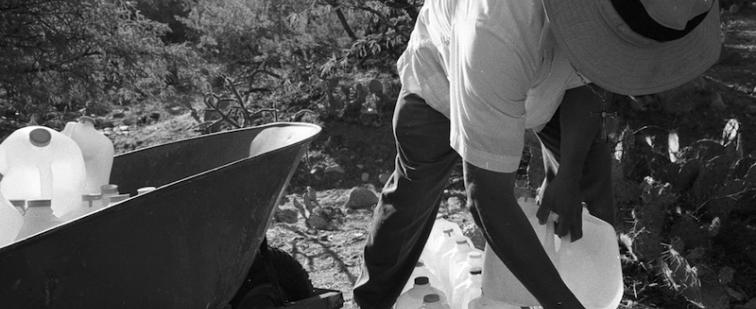Home
A proposed gold mining project in northern Costa Rica has stirred grassroots opposition in this country, which has long prided itself as a world leader in "green" environmental policies. The Crucitas mine threatens two species facing extinction, and the government's approval of the project has led to a criminal investigation into whether Costa Rica's president knowingly violated local and international environmental laws.
Canada's role in the hemisphere is often portrayed by its officials as that of an understanding, well-intentioned partner. But Ottawa's aggressive pursuit of a free trade deal with the government of Colombia shows its policies toward Latin America run parallel to those of Washington, showing the same disregard for human rights and democratic accountability. In Latin America, Canada plays "good cop" to Washington's bullying.
The mainstream media is howling over Hugo Chávez's bid to change the constitution for a third term, while coverage of Colombia's Álvaro Uribe, a staunch U.S. ally, to do the same raises few, if any, questions in the media. U.S. news coverage of parallel political events in Colombia and Venezuela offers an opportunity to test the usefulness of Edward Herman and Noam Chomsky's "propaganda model," developed in their 1988 book Manufacturing Consent: The Political Economy of the Mass Media.
The mainstream media is howling over Hugo Chávez's bid to change the constitution for a third term, while coverage of Colombia's Álvaro Uribe, a staunch U.S. ally, to do the same raises few, if any, questions in the media. U.S. news coverage of parallel political events in Colombia and Venezuela offers an opportunity to test the usefulness of Edward Herman and Noam Chomsky’s “propaganda model,” developed in their 1988 book Manufacturing Consent: The Political Economy of the Mass Media.
In an open letter to the Board of Directors of Human Rights Watch, over 100 experts on Latin America criticized the organization's recent report on Venezuela, A Decade Under Chávez: Political Intolerance and Lost Opportunities for Advancing Human Rights in Venezuela, saying that it "does not meet even the most minimal standards of scholarship, impartiality, accuracy, or credibility."
A recent massacre of riders on a passenger bus was a painful reminder that violence in Guatemala is out of control. Homicide rates now surpass even those of the country's bloody civil war. Savage violence is affecting all sectors of society and is being perpetrated by a dizzying array of sources—common criminals, narco-traffickers, street gangs, and the state security forces. Sadly, another generation of Guatemalans is growing up in a society consumed by violence.
With a mandate from the U.S. public and the voters of Florida, Barack Obama has the perfect opportunity not only to keep his promise to end restrictions on Cuban American travel and remittances; he has the political capital to pursue an even more audacious approach. In so doing, he may be able to count on support from a majority of Cuban Americans, according to a brand new survey conducted by Florida International University (FIU).
Writing a thesis paper is normally the arduous culmination of years of study for most graduate students. For Lucía Morett of the National Autonomous University of Mexico, it turned into a fiery nightmare. While studying popular song and theater in Latin American guerrilla movements, she barely survived Colombian jets' aerial bombing of the jungle camp where she was staying. Four of her fellow students weren't as lucky. This is her story.
While the government stubbornly denies the existence of paramilitary groups, the people of Tierralta in the northern Colombian department of Córdoba know otherwise. Tierralta's residents are facing a wave of killings and massacres at the hands of these murderous gunmen. With nearly four million internal refugees, Colombia already has the world's second-largest humanitarian crisis, and the paramilitary resurgence is already making things much worse.












